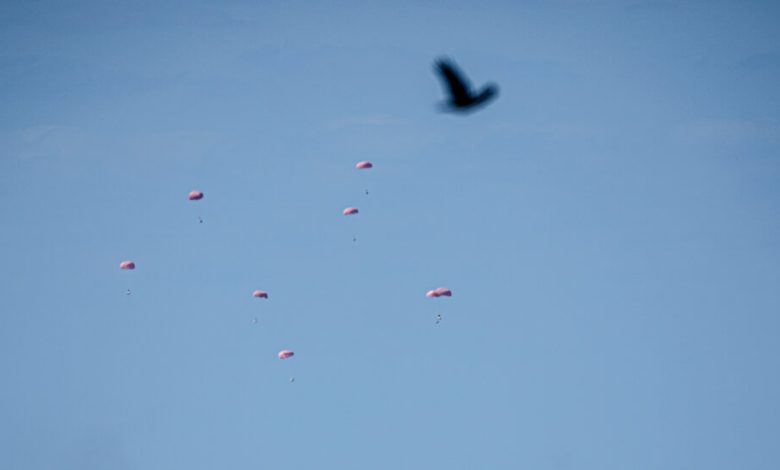Israel Allows Aid Directly Into North Gaza, Raising Hopes for More

Israel has allowed a small convoy carrying food to enter northern Gaza directly through an Israeli border crossing for the first time since the war began on Oct. 7, as global pressure intensifies to let more desperately needed aid into the territory, where hundreds of thousands are at risk of starvation.
The Israeli military said that it had allowed six trucks carrying supplies from the United Nations World Food Program to enter the northern Gaza Strip on Tuesday, not far from the Israeli village of Be’eri, where more people were killed in the Hamas-led Oct. 7 attack than in any other community. The World Food Program said that its delivery, containing food for 25,000 people, was its first since Feb. 20 to the northern part of the enclave.
For five months, aid groups had been able to reach northern Gaza only by entering through one of two southern border crossings, and then attempting a difficult and hazardous drive to the north. Few had successfully made the trip to distribution points. After the convoy on Tuesday cleared Israeli inspection, it crossed into Gaza through a gate on a security fence that had not previously been used for aid deliveries, the Israeli military said.
The food was only a sliver of what would be needed to feed hungry Gazans suffering from extreme food shortages, particularly in the north, where the Israeli army invaded in late October and where some residents have resorted to eating leaves and animal feed. Little aid has reached northern Gaza after major relief groups suspended operations there, citing lawlessness, poor road conditions and Israeli restrictions on convoys.
To avoid the risk of crowds jumping on trucks to grab supplies, the aid from the northern convoy was distributed quickly and close to the fence, said Abeer Etefa, a spokeswoman for the World Food Program. The convoy included one truck full of flour and five carrying food packages. The delivery came after six days of intensive negotiations, she said.
“The significance of this is that it revives the hope of continued access to northern Gaza over land,” Ms. Etefa said. “It’s a good step, but we just hope that it doesn’t end up being a one-off.”
